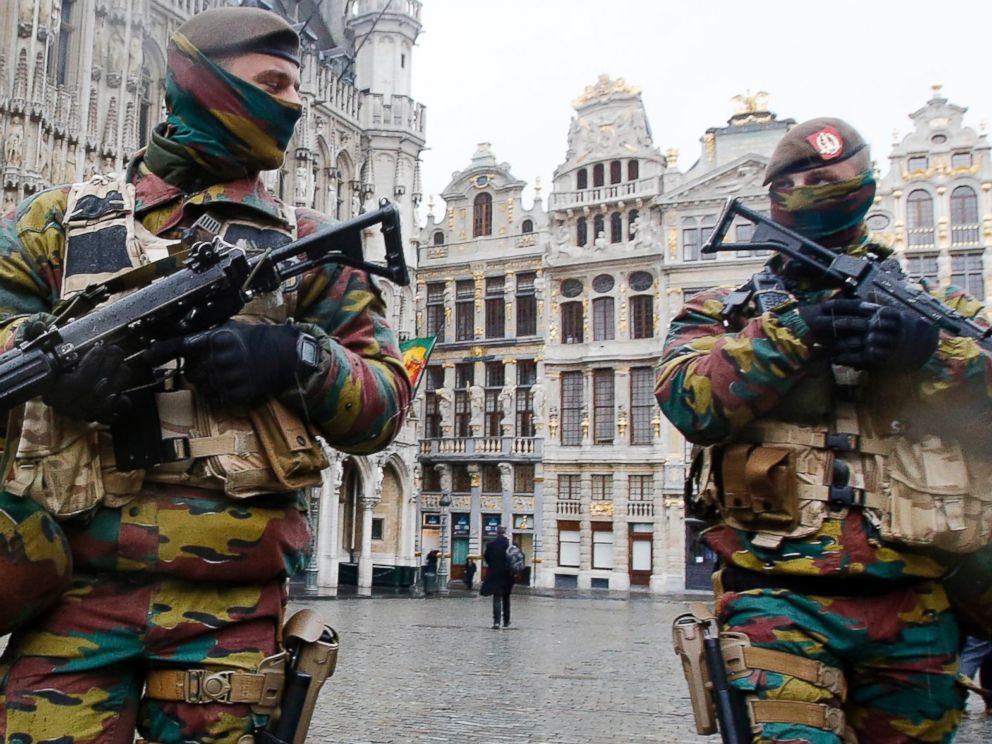Europe's Top Cop Fears Blowback From ISIS 'Squeeze'
Returning foreign fighters could pose a domestic threat, he said.
— -- As military pressure on ISIS ramps up, foreign fighters who travelled to Syria and Iraq in recent years could return home to Western Europe and pose a domestic threat, the continent’s top law enforcement official said in an interview on Wednesday.
Europol Director Rob Wainwright welcomed the progress made by the U.S.-led coalition against the terror group and predicted its eventual downfall, but told ABC News that Western European nations are challenged with the task of tracking returning foreign fighters and neutralizing any threat they may present.
Trained Abroad, Attacking at Home
"What we are particularly concerned about in the European security environment is the extent to which that [coalition military campaign] might squeeze the terrorist fighters that have flocked there in the last couple of years to come home -- to come home and carry out the kind of atrocities that we have already seen in Paris and Brussels and other locations," Wainwright said.
Europol, a continent-wide criminal intelligence agency, as well as intelligence agencies in individual European countries are monitoring for increases in the return of those fighters to Europe, he said in the interview with ABC News’ Brian Ross.
Several European countries from NATO, such as France and the United Kingdom, are part of the coalition pounding ISIS from the air, assisting in training moderate Syrian rebels or providing aid and shelter to war refugees.
Concerned about the threat posed by returning fighters, a major priority for intelligence agencies has been to identify all foreign fighters who've traveled to join the so-called “caliphate” declared in 2014 by the terror group's leader, Abu Bakr al-Baghdadi.

"By the time they’ve come back and carry out these attacks, they were more trained, better trained, more honed operatives. And that's the threat," Wainwright said.
Paris suffered a major attack just over a year ago by a cell of ISIS operatives who killed more than 135 civilians in gun and bomb attacks in the streets and at businesses such as the Bataclan Theater.
Remnants of that ISIS cell resurfaced months later in a shocking spree of attacks in the airport and public transit system of neighboring Brussels.
Wainwright said that there may be other ISIS cells that are poised to strike in Europe, which is easy to reach overland from Syria.
“ISIS is still active. They are still in the business of sending their terrorists to Europe, to plan and carry out these attacks -- much harder for them now to do it, but the threat is still there," he said.
This threat has led to new measures by European Union members to try to secure borders.
Terrorist-Criminal Nexus
Another growing concern voiced by the Europol chief, who leads a multi-national agency of 1,000 operatives including American law enforcement officers, is that ISIS fighters -- who often have criminal backgrounds in Europe -- will further leverage their contacts in the criminal underworld "to sneak back [through] the back door."
"We have seen them operating that on the strategic level, making use of that to acquire firearms, to acquire false documents, to also operate and manipulate perhaps some of the illegal immigration networks that are also a security concern to Europe right now," Wainwright said.
"We are not complacent about this and we are very much alert to any signs,” he said.

U.S. Concerns
While the United States is buffered from the threat to some extent by geography, the European chief’s comments come amid concerns by his counterparts in the United States that the holiday season could prove opportune for those bent on carrying out an attack.
As ABC News reported on Tuesday, a bulletin posted by the Department of Homeland Security warned that “public events and places where people congregate,” could be a target.
The agency was quick to note, however, that it was unaware of any “intelligence that is both specific and credible at this time of a plot by terrorist organizations.”




